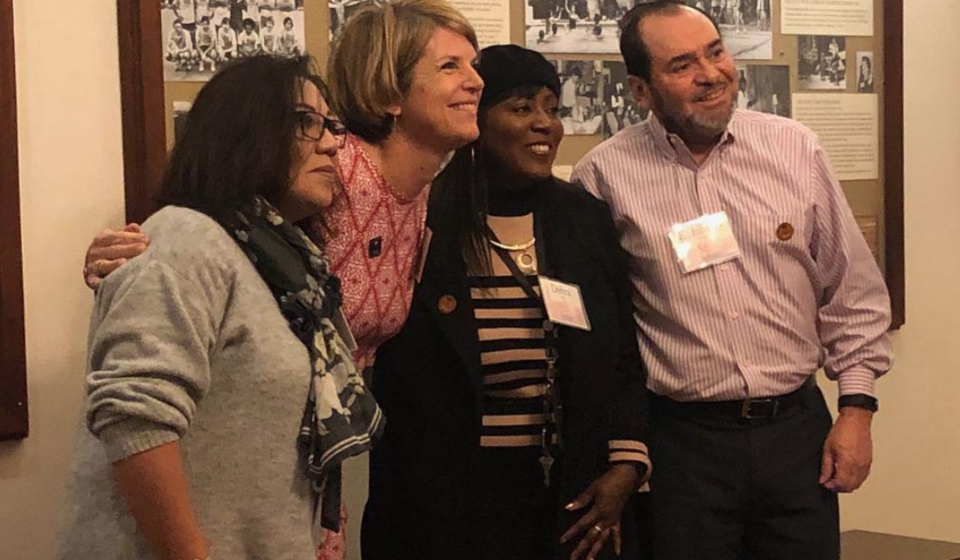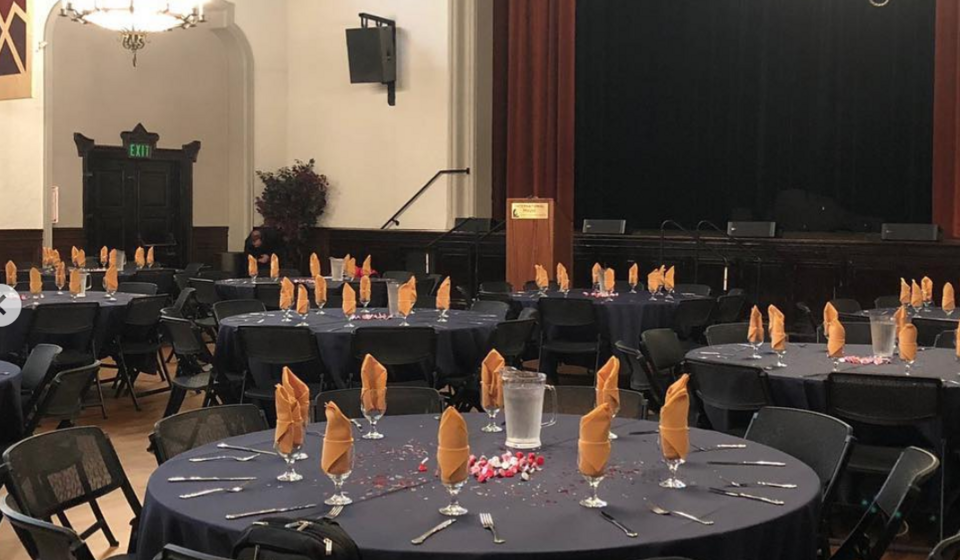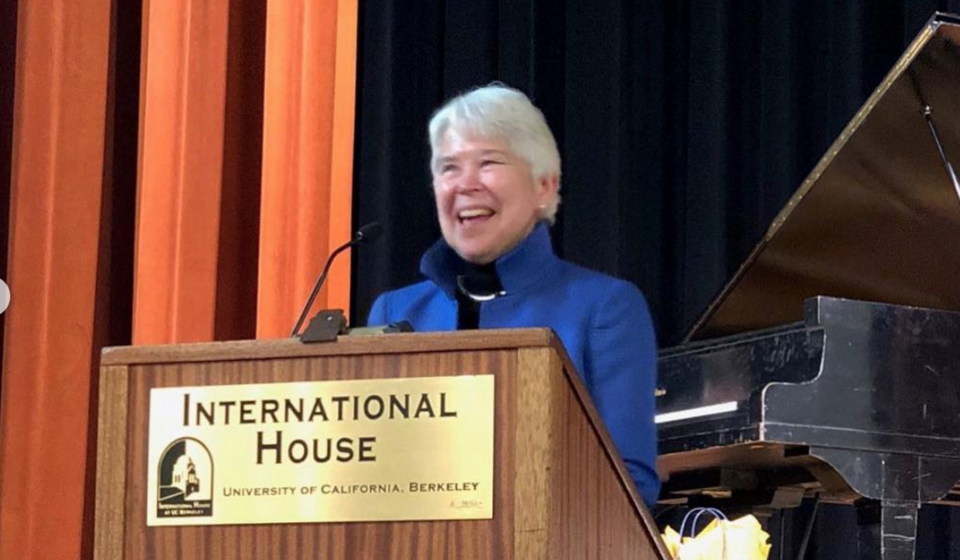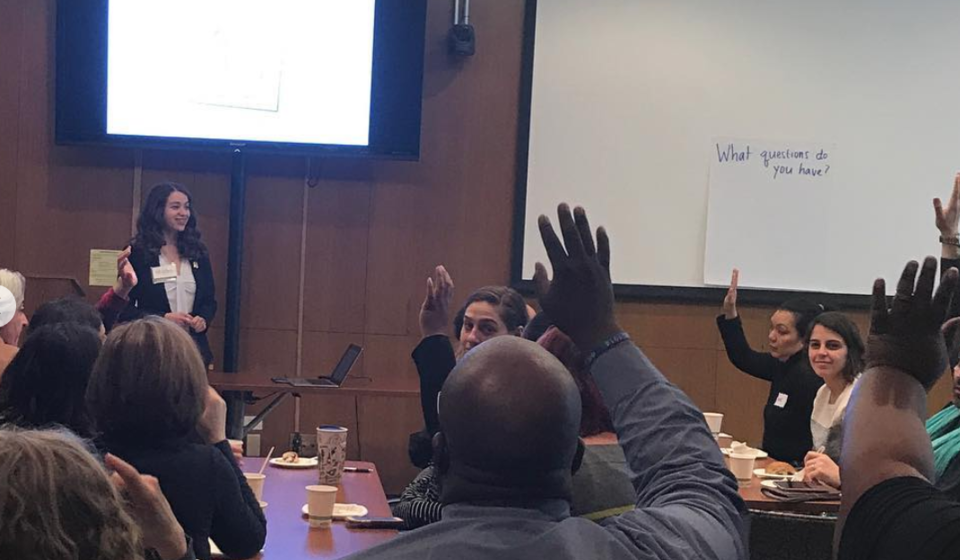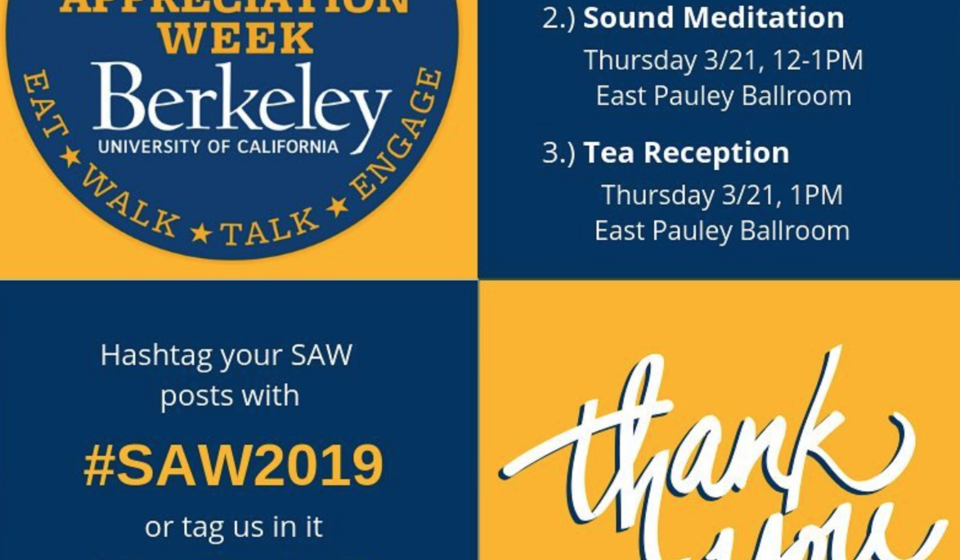You’ve met with quite a few staff at UC Berkeley to provide career coaching. As you’re gearing up for retirement in two weeks, and reflecting on your experiences with staff, what would you say are the most common aspects that staff seek support with and what would you recommend readers try if they have similar needs?
It’s been a real privilege to work with UC Berkeley staff on a wide variety of career development questions. There are common themes, although each person’s concerns are also unique. I’ve met with people about specifics like updating their resumes, and also with people who are looking for more in their careers….even if they don’t know what “more” could look like. Both ends of this spectrum are real and important, but they point to different next steps. What’s key across the board is to look both inward and outward. People who are most effective at managing their careers pay attention to the world they want to work in. They keep up with the field, and they build professional relationships. They also think about what makes them who they are. In his keynote address at the 2019 NOW Conference (“Next Opportunity at Work” career development conference for staff), Shadan Deleveaux talked about “understanding your Why.” What makes each of us unique causes us to enjoy particular kinds of roles more than others. Yet sometimes we take our skills, values, and personality traits for granted. That can make it hard for someone to make good decisions about career steps.
What are the top 3 things that people can do to help their resume stand out for the job of their dreams?
Yes, a good resume is certainly an important tool. First, it’s important to understand the needs of your readers. When writing a resume to be considered for a specific type of job, take time to understand the role. Sometimes a person has great skills that would transfer to a role, but their resume doesn’t reflect that. Second, use your resume to show what you’ve accomplished in your jobs. That means showing how you’ve contributed to results. Third, make your important information easy to find. That means being concise. I don’t believe there’s one right length for a resume. But every phrase should add something important about the value you bring. If it doesn’t, ask yourself if you really need to say it.
I would add that as important as it is to have a good resume, it’s not the only thing. Cultivating good professional relationships and honing interview skills are just as important.
Grow your network by connecting with featured staff, or staff organizations on Wisdom Café.
Thinking about one’s career and the next job can be daunting. What is the most crucial thing people should keep in mind when they’re ready to search for that next position?
First I’d say, career development is more than job search. It’s also about preparing for the next phase, usually in advance. It takes ongoing attention to make yourself a good candidate, by cultivating relevant skills and experiences. That doesn’t mean waiting to apply until you’re 100% “there.” But the steps you take to prepare can help show that you’re serious.
Your question also points to the resilience and perseverance it takes to develop your career. It might take a few tries to “land” what you’re looking for. Guard against discouragement by staying positive about your skills and abilities even when the going gets tough. Use each step for learning. “Design thinking” literature talks about having a bias to action. Not every action will bear fruit, but without action, lack of fruit is pretty much guaranteed.
What skills help people manage their careers effectively and what would you recommend people do to develop these skills?
I think there is a common core of skills that support performance in all sorts of careers, on top of the relevant content knowledge. Communication and problem-solving are great examples. These are reflected in UC Berkeley’s Core Competencies and the Transferable Skills Library that you’ve developed, Shirley. I believe in using varied resources. Online learning (such as LinkedIn Learning), classroom learning, observing role models, and finding ways to practice all add up.

Terrie Moore is the current Lead for Career Development in Central HR’s Learning and Development Department. She’s been a part of the UC Berkeley community since coming to campus for an internship in 2008, and will retire on September 6th, 2019. To follow up with her about this article e-mail terriemoore@berkeley.edu or connect with her on LinkedIn.
Never miss a feature by signing up for the Wisdom Cafe newsletter.







